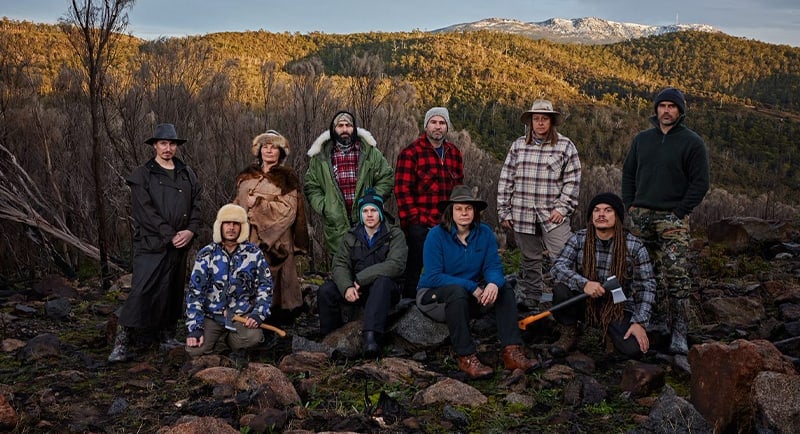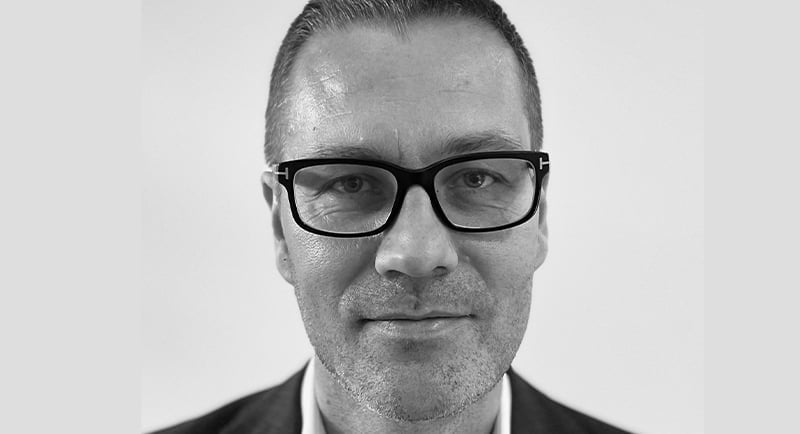A group of 10 Australian survivalists will be dropped in the remote wilds of Western Tasmania, completely isolated from the world and each other. They will be stripped of modern possessions, contact and comforts, and given a camera to self-document their experience. Battling nature, hunger, and crushing loneliness, the last one standing will win $250,000.
SBS’s 11-part documentary series Alone Australia is set to premiere with a double episode on Wednesday, 29 March at 7.30pm, and continue weekly from 7.30pm, exclusively on SBS and SBS On Demand.
Mediaweek spoke to SBS Head of Unscripted, Joseph Maxwell, about bringing Alone Australia to life.
Alone already has very successful seasons overseas. Maxwell says that bringing the format down under was less a question of whether or not it should be done, but more about what Australia could offer the format.
“We started looking at the performance of Alone USA and Scandinavia, and watched it climb, and climb, and climb, and climb. The numbers are absolutely staggering, it’s the biggest ever factual series in SBS On Demand history. We realised there was an extraordinary appetite for the show and extraordinary engagement, the question we then had to ask was, why do an Australian version?
“What we felt really clearly, was that there’s an angle and input we could give that will make it feel uniquely and distinctly Australian.”
Finding a cast of people willing to forgo all modern luxuries to spend an indeterminate length of time in the wild is a challenge in and of itself. Maxwell says that when casting the show, the team had certain things they were looking for – diversity of experience, for example – but ultimately he says that “however strategic you want to be, there’s the brilliant serendipity and chance that takes over.”
“It’s a pretty unique kind of person who wants to do this, it’s very rare that you’re going to find someone who wants to be truly alone, with no interference, who is able to tell the story as they want to tell it. The uniting factor is the fact that they are prepared to do something that so few other people would.
“We were blown away, we had nearly 10,000 people go onto the site to start that application process, so clearly there was an appetite there. But then what you’ve got to tap into for us is, what did they bring to it that will feel different?”

Alone Australia cast: Michael, Duane, Gina, Peter, Jimmy, Chris, Kate, Beck, Rob & Mike
At the core of the show, Maxwell says that casting required something that can’t be tested for.
“What we realised quite quickly, I think, is that it wasn’t necessarily so much about their survival skills, it was much more about how they dealt with truly being alone. That is very hard to predict.”
How someone deals with isolation isn’t wasn’t the only unknown the team were working with. Whilst most shows will have producers or camera operators on hand to make sure everything runs smoothly, Alone sees the participants trusted to take a camera into the wilderness on their own.
“That’s why this show is so distinctive and unique. There’s nothing else like that. To say, ‘we’re going to hand total control to 10 people to tell these stories’ is an extraordinary amount of trust, and there is a huge level of risk in that. For us, the answer to mitigating that was to be really clear that they’ve been cast for a reason, we want to hear their voices.
“To commission a show where you have no control is a really fascinating thing.”
Maxwell also compliments the editing when it came to bringing the stories together.
“The show is beautifully edited. With the post-production process, to actually weave together 10 different stories into a compelling single narrative required a huge amount of skill from ITV Studios who put it together.”
The show sees the survivalists dropped off into the Western Tasmania wilderness. In a country like Australia that houses so many distinct landscapes, Maxwell says that there were a number of reasons that made Tasmanis work as a location.
“We did decide early on that we wanted cold weather climates, I think there is something about the challenge of dealing with the cold that is pretty unique. That immediately limited the options within Australia. We did look across numerous states and numerous locations, but there’s something deeply powerful about that location – it is a very unique landscape.
“It’s not easy to find a landscape that we can take over for that long. We wanted those 10 people to be able to survive there, to fish, to hunt, all while abiding by the local laws. Also, it’s actually a very tough thing to find a landscape big enough – each individual has their own plot, and we’ve got to make sure they’ve got no line of sight to another plot, and that they can’t hear anything from other plots. The spacing out of that is really, really important, and that’s a very big bit of land that you need to be able to do that.”
Ultimately in a show with so much risk to create, Maxwell says that it was absolutely worth it for the team in the end.
“The risk is like nothing else with this show, what’s extraordinary is that it has paid off. I think the answer to why it’s paid off is that there’s something beautiful in the simplicity of the format. It’s not about interventions, it’s not about rules, it’s just very raw and unfiltered. That’s where the strength of this shows lies, and that’s what actually intrinsically makes it work.”
